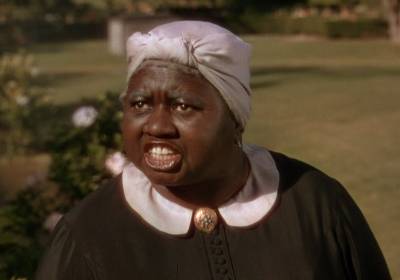Gone
with the Wind (1939)

 This story emerged towards the end of
The Great Depression in the United States. It’s amazing how the struggle in
Atlanta pre, during and post-Civil War could so closely relate to much of the
United States in the 1930s. Scarlett O’Hara’s (Vivien Leigh) character is
forced to develop from a spoiled southern belle to a hardworking woman when she’s
left to take care of her pregnant friend Melonie Hamilton (Olivia de Havilland),
dying soldiers and her home Tara. Scarlett’s development is only one reason why
this film captivated me for four hours. Rosie the Riveter-esque, Scarlett’s
attitude towards men seems surprisingly powerful for the time. It was
satisfying to see that although she was painted as a sex symbol, she chose her
relationships based on what would be convenient for her. She didn’t allow other
people to sway her or affect her decisions despite the character one might
assume her to be. Once she loses her money and is hit hard with the reality
that is the South during the civil war.
This story emerged towards the end of
The Great Depression in the United States. It’s amazing how the struggle in
Atlanta pre, during and post-Civil War could so closely relate to much of the
United States in the 1930s. Scarlett O’Hara’s (Vivien Leigh) character is
forced to develop from a spoiled southern belle to a hardworking woman when she’s
left to take care of her pregnant friend Melonie Hamilton (Olivia de Havilland),
dying soldiers and her home Tara. Scarlett’s development is only one reason why
this film captivated me for four hours. Rosie the Riveter-esque, Scarlett’s
attitude towards men seems surprisingly powerful for the time. It was
satisfying to see that although she was painted as a sex symbol, she chose her
relationships based on what would be convenient for her. She didn’t allow other
people to sway her or affect her decisions despite the character one might
assume her to be. Once she loses her money and is hit hard with the reality
that is the South during the civil war.
It was an interesting historical perspective
to see. Coming into the movie, I had only my knowledge from New England schools
about the Civil War. In GWTW, not only did I get to see the Southern
perspective but it was the perceived Southern perspective from the 1930’s
South. The time difference from the film’s release to the War is about the same
distance from current day to the film’s release.
Scarlett’s difficult struggle during the
war as her life was crumpling around her is something many people related to in
the 30s and can relate to still. Her determination to preserve Tara and remain
well fed left her seemingly unfeeling and cold. Marrying Kennedy and breaking
her sisters heart was a necessary step in her eyes to paying the $300 dollars
in tax money for Tara. This was something she believed she had to do and her
starting the lumber mill and taking over was a clear sign of her growth. Although
many people in the town did not approve of her independence, Scarlett didn’t
let this affect her.
The film brushed the
brutality of slavery under the rug and painted a pretty picture of the South
for the movie’s purposes. I'm not sure this was the respectful choice, however, had they focused on the fact that Scarlett was a slave owner, it would cast a uneasy feeling on the entire film. Mammy was a mother figure to Scarlett as she had been working at Tara since Scarlett was born. She was one of the most lovable characters in the film. The actress that played Mammy, Hattie McDaniel, in
fact won an Oscar for her performance. I
agree that Mammy’s character was a fan favorite.
As an audience member, for a ‘happy
ending’ I wanted her and Rhett’s relationship to work out. However, because of
her ongoing feelings for Ashley, Rhett felt more and more disconnected until their
daughter Bonnie was the only thing keeping them together. Unfortunately, after
Bonnie’s untimely death and the peril that was Melonie’s illness, Rhett finally
leaves her. This moment is almost refreshing because I wanted Rhett to be free
of her. Scarlett realizes her feelings for Rhett too late but with her
determined spirit she reminds herself: “After all, tomorrow is another day.”
By Haley Dougherty


No comments:
Post a Comment